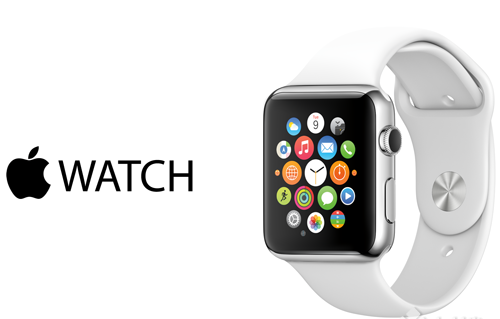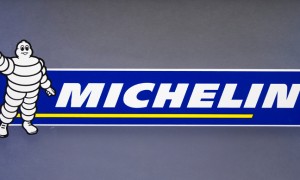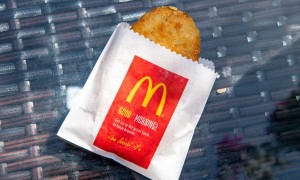苹果新产品:Apple Watch 绝对不是个没用的东西

When people say Apple has built things people didn't know they need, it's not really true. Apple has built things that meet the needs people have always had. More than any other consumer company, Apple gets what people really, fundamentally need. That's why announcements like last week's Apple Watch tend to have the cultural impact they do.
当人们谈及苹果品牌,常常说,它制造了一些人们不知道自己需要的产品,其实并非如此。苹果早已制造了人们日常所需的产品。甚至比其他的产品公司,苹果从人们根本所需的基础上制造产品,正如不久前Apple Watch首发时所标榜的,它正产生着深刻的文化影响力。
When we think of needs and products we often go right to Maslow's Hierarchy of Needs, the ubiquitous theory that human needs manifest in a specific sequence, from base survival to the pinnacle of self-actualization. Marketers have spent decades figuring out at what level of Maslow's hierarchy their customers are stuck, and then offering products and marketing for that need. Think of Campbell's "Mmm-mmm Good" campaign at one end and Lexus's "Relentless Pursuit of Perfection" at the other. If Maslow was right, brands needed to target a single need, satisfy it well, and be done.
当谈及到人们的生活所需,我们常常都会想到马斯洛需求层次理论,也就是人类在每个阶段的不同需求,从底部最基本的生存需求到顶端的自我实现需求。市场营销人员多年来不断进行研究,消费者的需求处于哪个层次,并相应地为人们提供生活所需品。试思考,以"嗯…不错"为口号的坎贝尔罐头公司的市场战役和以"不懈地追求完美"为目标的凌志汽车公司是如何不断追求满足消费者需求的。如果马斯洛的理论是符合现实的,那么那些著名的品牌就需要重新定位,把目标从人们的基本需求方面制定,做到尽善尽美。
Maslow's Hierarchy of Needs:马斯洛需求层次理论,也称为基本需求层次理论。分别是生理上的需要,安全上的需要,情感和归属的需要,尊重的需要,自我实现的需要和自我超越的需求。
ubiquitous,adj.:普遍存在的;无所不在的。此处指的是马斯洛所提出的六大需求层次理论,就是人类所普遍存在的需求。
pinnacle n. :高峰,顶尖,极点。
Campbell:坎贝尔罐头公司
Lexus:雷克萨斯(凌志汽车),日本丰田汽车公司旗下豪华车品牌。
But it turns out that Maslow wasn't entirely right. My own research at Forrester Research has focused on synthesizing a much more complete and empirical description of people's fundamental needs based on research in psychology, economics, and neuroscience. When we talk about human needs, we use four categories:
然而,研究发现马斯洛理论似乎不太符合当今的社会状况。笔者在福雷斯特研究公司进行了一项研究,其关注于建立一个关于人们需求的更完整更有说服力的理论描述,其中涵盖了心理学,经济学和神经学科方面的知识。当我们谈论到人类需求,有四个方面是需要考虑的:
Connection
关联性
Comfort
舒适性
Uniqueness
个性化
Variety
多样化
Crucially, we've learned that these needs are not hierarchical. Think of yourself: You don't wake up in the morning and only think about food, then worry about making money, then think about loftier pursuits. Neither your day nor your life unfolds like that. It's messier, because of our adaptive and clever biology. Our hormones, our neurotransmitters, even our gut bacteria cause us to think about base needs like survival and loftier ones like personal fulfillment simultaneously. In fact, they compete with one another for our attention, and we prioritize and re-prioritize them on the fly, as context changes.
要注意的是,我们早已明白这些需求并不是最重要的。请考虑一下自身情况:早上起床的时候,我们并不会担心没有食物或者无法赚钱养家,那么我们就思考更高层次的需求。我们每天的生活都不会以这样的担忧而开始,还有比这更复杂的,因为我们拥有人类天生拥有的适应性和智慧。我们的荷尔蒙,神经传递介质,甚至是肠道细菌都会让我们同时思考自身的基本需求,如生存需求和实现自身满足感的更高层次的需求。实际上,它们正利用我们的注意力彼此互相抗衡,正如不同的情境变换,我们把它们多次不断更改优先的位置。
lofty adj.:崇高的,高级的。此处loftier pursuits,更高层次的需求,指的是精神层面的追求。
neurotransmitter ['nʊrotrænzmɪtɚ], n.:神经递质
Apple's understanding of this is what sets it apart when it comes to launching market-changing products, including the newly announced Apple Watch. Apple doesn't lock into one need on the hierarchy (soup that satisfies hunger, or perfect luxury car), but instead builds and markets products that connect on all four of the human needs that we're grappling with constantly. Let's use the Apple Watch as an example:
苹果公司根据其对于人类需求的理解,在市场变动的情况下推广产品的时候,包括Apple Watch,把这两个概念分离开来。苹果公司并不局限优先满足某一个需求(生理需求还是精神需求),相反地,它制造和推广符合人们不断挣扎的四大需求的新产品,下面就以Apple Watch为例,给大家分析苹果公司是如何的独领风骚。







